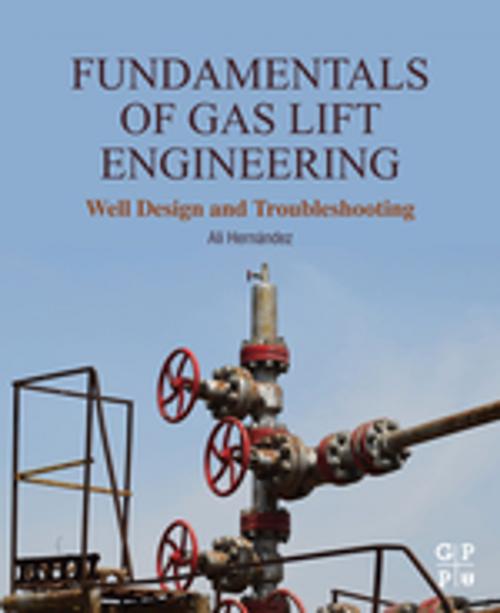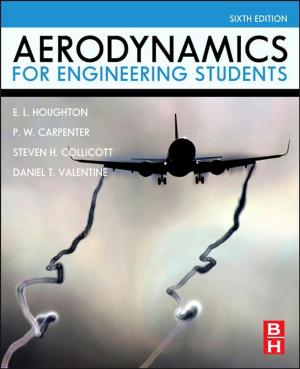Fundamentals of Gas Lift Engineering
Well Design and Troubleshooting
Nonfiction, Science & Nature, Technology, Environmental, Power Resources| Author: | Ali Hernandez | ISBN: | 9780128041468 |
| Publisher: | Elsevier Science | Publication: | February 18, 2016 |
| Imprint: | Gulf Professional Publishing | Language: | English |
| Author: | Ali Hernandez |
| ISBN: | 9780128041468 |
| Publisher: | Elsevier Science |
| Publication: | February 18, 2016 |
| Imprint: | Gulf Professional Publishing |
| Language: | English |
Fundamentals of Gas Lift Engineering: Well Design and Troubleshooting discusses the important topic of oil and gas reservoirs as they continue to naturally deplete, decline, and mature, and how more oil and gas companies are trying to divert their investments in artificial lift methods to help prolong their assets.
While not much physically has changed since the invention of the King Valve in the 1940s, new developments in analytical procedures, computational tools and software, and many related technologies have completely changed the way production engineers and well operators face the daily design and troubleshooting tasks and challenges of gas lift, which can now be carried out faster, and in a more accurate and productive way, assuming the person is properly trained. This book fulfills this training need with updates on the latest gas lift designs, troubleshooting techniques, and real-world field case studies that can be applied to all levels of situations, including offshore.
Making operational and troubleshooting techniques central to the discussion, the book empowers the engineer, new and experienced, to analyze the challenge involved and make educated adjustments and conclusions in the most economical and practical way. Packed with information on computer utilization, inflow and outflow performance analysis, and worked calculation examples made for training, the bookbrings fresh air and innovation to a long-standing essential component in a well’s lifecycle.
- Covers essential gas lift design, troubleshooting, and the latest developments in R&D
- Provides real-world field experience and techniques to solve both onshore and offshore challenges
- Offers past and present analytical and operational techniques available in an easy-to-read manner
- Features information on computer utilization, inflow and outflow performance analysis, and worked calculation training examples
Fundamentals of Gas Lift Engineering: Well Design and Troubleshooting discusses the important topic of oil and gas reservoirs as they continue to naturally deplete, decline, and mature, and how more oil and gas companies are trying to divert their investments in artificial lift methods to help prolong their assets.
While not much physically has changed since the invention of the King Valve in the 1940s, new developments in analytical procedures, computational tools and software, and many related technologies have completely changed the way production engineers and well operators face the daily design and troubleshooting tasks and challenges of gas lift, which can now be carried out faster, and in a more accurate and productive way, assuming the person is properly trained. This book fulfills this training need with updates on the latest gas lift designs, troubleshooting techniques, and real-world field case studies that can be applied to all levels of situations, including offshore.
Making operational and troubleshooting techniques central to the discussion, the book empowers the engineer, new and experienced, to analyze the challenge involved and make educated adjustments and conclusions in the most economical and practical way. Packed with information on computer utilization, inflow and outflow performance analysis, and worked calculation examples made for training, the bookbrings fresh air and innovation to a long-standing essential component in a well’s lifecycle.
- Covers essential gas lift design, troubleshooting, and the latest developments in R&D
- Provides real-world field experience and techniques to solve both onshore and offshore challenges
- Offers past and present analytical and operational techniques available in an easy-to-read manner
- Features information on computer utilization, inflow and outflow performance analysis, and worked calculation training examples















